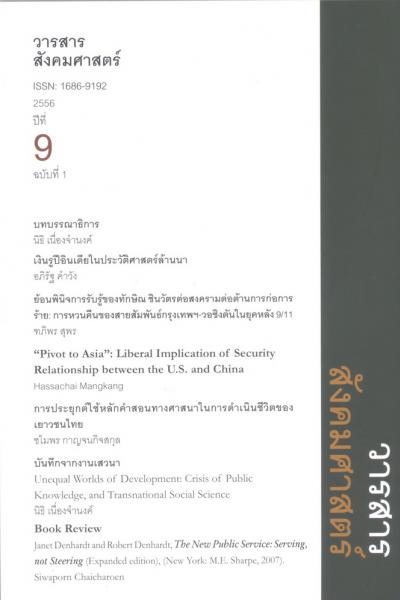“Pivot to Asia”: Liberal Implication of Security Relationship between the U.S. and China
Main Article Content
Abstract
The recent U.S. strategy toward Asia-Pacific, called “Pivot to Asia” or “Rebalancing Asia” announced by President Barack Obama during his trip to Asia-Pacific countries in 2011, focusses on multilateral organizations, economic and trade, security, and democracy. To analyze this strategy, this article utilizes liberalist theory and “complex interdependence” concept, developed by Robert O. Keohane, and Joseph S. Nye, Jr. Complex interdependence proposes that relationship between China and the United States results from multiple channels of communication, absence of hierarchy among issues, and irrelevance of military force. Therefore, in order to maintain peace and prosperity in the Asia-Pacific Region, both great powers could find common interests among various issues and should develop win-win situation (non-zero sum game) in their relationship. It means that the United States would be employing other means of national power than military power, such as economic or diplomatic means. Having stable and prosperous region equals to mutual interests among countries in Asia-Pacific.


